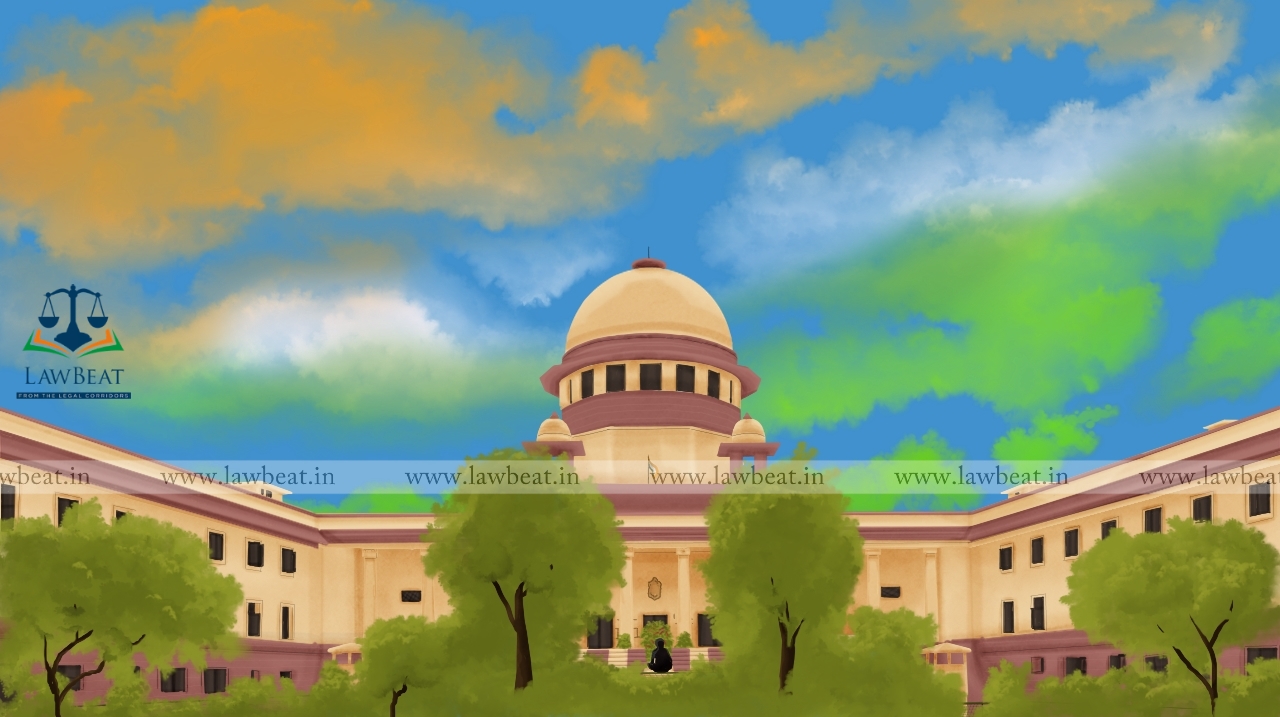Supreme Court Directs Reopening Of Anganwadi Centres Outside Containment Zones

The Supreme Court has held that State has to provide an appropriate mechanism for supervision and checks in Anganwadi Centre's across India.
A bench of Justices Ashok Bhushan, R.Subhash Reddy & MR Shah, observed that child development officers and other district level officers who are entrusted to monitor the functioning of Anganwadi Centres have to be extra vigilant and take steps so that no beneficiary is denied its dues.
"All States/Union Territories should evolve an appropriate mechanism for supervision so that dues are received by beneficiaries for whom schemes are in place. It is for the State to secure health to its citizens as its primary duty," the court noted.
The court also observed that unless there are any specific reasons for not opening of Anganwadi Centres, all Anganwadi Centres beyond the containment zones should be made functional by all the States/Union Territories at an early date.
"All States may review the situation and take positive decisions on or before 31.01.2021 and unless there are specific decisions taken by the State Disaster Management Authority of a particular State," said the bench
A writ petition under Article 32 was filed before the Supreme Court of India, questioning the closure of Anganwadi Centres on account of the pandemic.
The petitioner in the PIL has explained the motive of Anganwadi Centres which provide supplementary nutrition to pregnant women, lactating mothers, adolescent girls and children up to 6 years.
The petitioner filed the writ of mandamus directing the Union of India and all states and UTs to reopen all the Anganwadi Centres throughout the country and provide Anganwadi services as before the lockdown and in accordance with Sections 4 to 7 of the National Food Security Act, 2013.
Also, to direct the government to provide Hot Cooked Meals, Take Home Rations in consonance to the provisions of the National Food Security Act, 2013 as well as The Supplementary Nutrition (under the Integrated Child Development Services Scheme) Rules, 2020 along with the Supplementary Nutrition provided in the forms of the comprehensive package of Cooked Food, Eggs, Fruits, dry rations including cereals, pulses, etc. The petitioner also pleads the government to conduct growth monitoring of children to document the growth in the wake of the aftereffects of the pandemic more particularly primary nourishment among children and anaemia in girl children and initiate corrective steps.
After the lockdown was imposed under the Disaster Management Act, 2005 due to the spread of Corona Virus, Anganwadi Centres were closed throughout the country in March 2020. However, the distribution of special nutrition and other benefits to be provided for beneficiaries being essential services were permitted to be conducted by Anganwadi staff by resorting to Take Home Ration for pregnant and lactating women, and children in the age group of 6 months and 3 years and Morning Snacks and Hot Cooked Meals for the age group of 3-6 years.
Holdings
The Court highlighted the judgement in the case of People’s Union for Civil Liberties vs. Union of India and others wherein various orders were issued in order to protect the right to food of the poor and the underprivileged sections including children and women.
The Parliament in the year 2013 enacted the National Food Security Act in order to provide food and nutritional security in human life cycle, by ensuring access to adequate quantity of quality food at affordable prices to people to live a life with dignity. Section 4 of the act creates a statutory right of every pregnant woman and lactating mother free meals during pregnancy and six months after the childbirth. Section 5 of the act provides for nutritional support to children, in the age group of six months to six years, age-appropriate meal, free of charge, through the local Anganwadi so as to meet the nutritional standards, the bench noted.
The beneficiaries in Anganwadi Centres under the scheme are to be provided with supplementary nutrition, growth monitoring and counselling, pre-school education, immunization and referral services.
But the major question before the court which was the central point was as to what extent the implementation is on the ground and the benefits are extended to beneficiaries? The beneficiaries which belong to vulnerable classes are not equipped with suitable mechanisms to raise issues of non-implementation and not providing food articles complying with nutritional standards and that it is upon the state to ensure that pregnant women, lactating mothers and children in the age of 3 to 6 years and children who suffer from malnutrition are to be provided with the standard nutritions as well as to live with dignity.
Case Title: Dipika Jagatram Sahni Vs. Union of India
